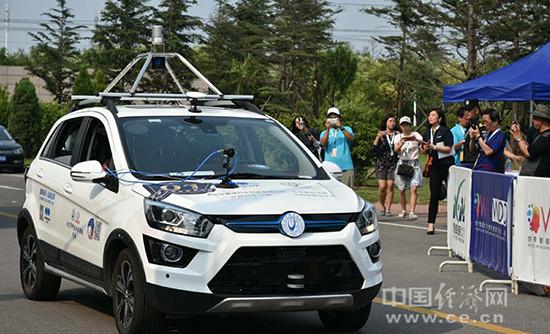With the ability to map the environment and measure the speed of objects, lidar is a major boost for partially or fully autonomous vehicles, and is unique in that it offers a long and wide range of views. Currently, there are more than 150 lidar producers worldwide.
"Humans are not equipped with lidar, but they can still drive." Musk tries to justify Tesla's self-driving software algorithm, which enables autonomous driving based on vision. However, as costs fall and technology continues to improve, lidar is being favored by more and more automakers.
Tesla CEO Elon Musk has long been skeptical about installing lidar sensors in cars, but more and more competitors are quietly using the technology.

Simply put, lidar is a sensor for light detection and ranging that measures the time it takes to bounce back from an object by emitting laser pulses. This data is used to calculate the distance between the emission source and the object and to create a three-dimensional map of the object within the area.
With the ability to map the environment and measure the speed of objects, lidar is a major boost for partially or fully autonomous vehicles, and is unique in that it offers a long and wide range of views. There are currently more than 150 lidar producers worldwide, and a large number of companies, including Velodyne, Luminar and Innoviz, have recently gone public.
"Humans are not equipped with lidar, but they can still drive." A few days ago, Musk tried to defend tesla's self-driving software algorithm, which can achieve automatic driving based on vision. However, as costs fall and technology continues to improve, lidar is favored by more and more automakers.
In January, Mercedes-Benz announced that it was working with Luminar to integrate lidar technology into production vehicles that would soon go into production; In mid-2021, Luminar reached a similar agreement with Volvo. In addition, BMW has reached a cooperation with Innoviz, and GM has also chosen Cepton as its supplier.
According to the latest statistics from Bloomberg Financial News, as of January this year, 17 automakers around the world have launched a total of 21 passenger models equipped with lidar, some of which have been put into production or some are about to be launched. This number will continue to increase as GM's LiDAR-based Ultra Cruise system is installed in select models.
In addition, the likes of Waymo and Cruise are trying to build mobility services with fully autonomous vehicles, which are commonly powered by lidar. For example, Waymo vehicles running in California and Arizona typically have five lidar sensors to help build a broad field of view.
It is worth mentioning that lidar has now been extended to more common safety functions, such as lane keeping and automatic emergency braking functions. In technical terms, this is advanced driver assistance systems (ADAS), which are completely different from self-driving cars. Lidar sensors can help improve the vehicle's reaction time and accuracy, but will also increase hardware costs.
In the lidar race, China is in a leading position. Bloomberg Financial Information statistics show that 70% of the models that have installed and will install lidar are from Chinese automakers, mainly electric models. Many local Chinese electric vehicle brands have equipped lidar with their models, such as Weilai, Xiaopeng and Ideal Car.
As the price of lidar plummets further, consumers begin to expect advanced safety features to be popularized, and more automakers are likely to add the technology to their models. This means that lidar may first appear on high-end models, but eventually the most popular models on the market will also have the feature. (Compiled by Jiang Zhiwen, China Economic Network)